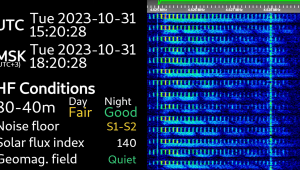Um no. I think that the Chinese and other OEMs will eventually directly sell in all but the nose-bleed channels.
Vizio Asks: Hey Punk, Do You Wanna Piece of Me?

So, how would you like to buy a piece of a TV company?
That's the question Vizio is asking. More specifically, on July 24, Vizio filed a Form S-1 (you can read the gory details here) with the Securities and Exchange Commission, seeking to raise $172.5 million. The Class A shares will trade under the ticker symbol "VZIO." The initial price of a share, the date of the public offering and the exchange that will list the stock have not been announced. But, in any case, you will be able to own a piece of Vizio.
Which brings us back to our question: why would you want to invest in the TV business? Well, let's think about that. Vizio, based Irvine, California, was founded in 2002. Formerly privately-held, its IPO filing peels back some of its financial layers. For example, its products are sold in 8,000 stores in the U.S. In 2014 it had $3.1 billion in revenue and $45 million in net income. In the first six months of 2015 it had $1.3 billion in revenue and $31.4 million in net income.
Most of that money comes from sales of TVs and sound bars. But intriguingly, the IPO also discloses Vizio's plan to ramp up the data mining of people viewing its TVs. I'll delve more into that tricky topic in the future.
As a potential investor, you should know that the IPO states that Vizio does not have internal manufacturing or testing facilities or capabilities. All of its products are manufactured, assembled, tested and packaged by third-party manufacturers who are original design manufacturers and original equipment manufacturers. Interestingly, 97% of its 2014 inventory came from four manufacturers. Whether this outsourcing model is a good thing or a bad thing is up to you to decide. I will note, however, that the practice is typical in today's tech world. Another interesting note: one of its manufacturers, AmTRAN, sells TVs in the U.S. under the JVC brand name.
The IPO also states that in 2014, 80% of its retail sales came from four retailers: Walmart, Sam's Club, Costco, and Best Buy, with the first two selling the lions share. Clearly, that greatly simplifies Vizio's distribution. But Vizio is trying to reduce its reliance on big outlets by moving into small specialty and regional stores. That might be particularly useful when its anticipated high-end models, including Dolby Vision HDR TVs, come to market.
So, would Vizio be a good investment? And more generally, what is the future of TV manufacturing? When so many companies are bailing, it is really wise to step in? I guess that boils down to your investing style. When everyone is selling, do you sell too? Or when everyone is selling, do you buy? Obviously, everyone will always have a TV in their home and will continuously buy new models. So, you can probably count on sales, but what about profits?
- Log in or register to post comments
































































